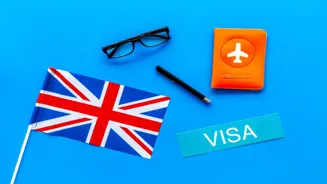Despite all your documents being genuine and accurate, saying the wrong thing, even unintentionally, during the interview can still hurt your chances. This process can be more stressful.
So, if you are looking for a UK visa, here are the things you should avoid during the interview process.
Do not fake an accent, as it can hamper your image, and you may seem unnatural.
Do not mug up answers beforehand.
Avoid using fillers such as “like” or “umm” during the interview process.
Do not lie or provide vague answers, and be clear about the things you have mentioned in your documents. Examples are, “I don't remember the details,” or “My friend did all the paperwork, I'm not sure.”
Do not say you are planning to settle on your temporary visa. Avoid saying, “Maybe I won't come back if I like it there.”
ALSO READ | Schengen Visa Interviews: How to prepare for it and mistakes to avoid
Do not say that you are not financially prepared and do not have enough money.
Do not criticise UK policies and laws.
How to prepare for the UK interview visa process
The first thing you need to focus on is dressing appropriately and looking presentable because, after all, first impression matters. Keep a warm smile, sit up straight, and avoid slouching. Your body language speaks as much as your words.
You should also be clear about the purpose of your visit to the UK. For instance, if you are applying for a student visa, do not mention plans to work full-time and be informed about your course and the university.
ALSO READ |US Visa Interviews: How to prepare and what not to say during interviews
Make sure all your documents contain accurate information; providing false and misleading information can lead to immediate visa rejection. And say only things that are mentioned in your documents.
Documents required for the UK visa interview process are a passport, a university offer letter in case of a student visa, recent bank statements showing proof that you have sufficient funds, and accommodation details.
Before going for an interview, practice answering common questions such as “Why do you want to go to the UK?” “Where will you stay in the UK?" “Who is sponsoring your trip?" or "What will you do after your visa expires?"














